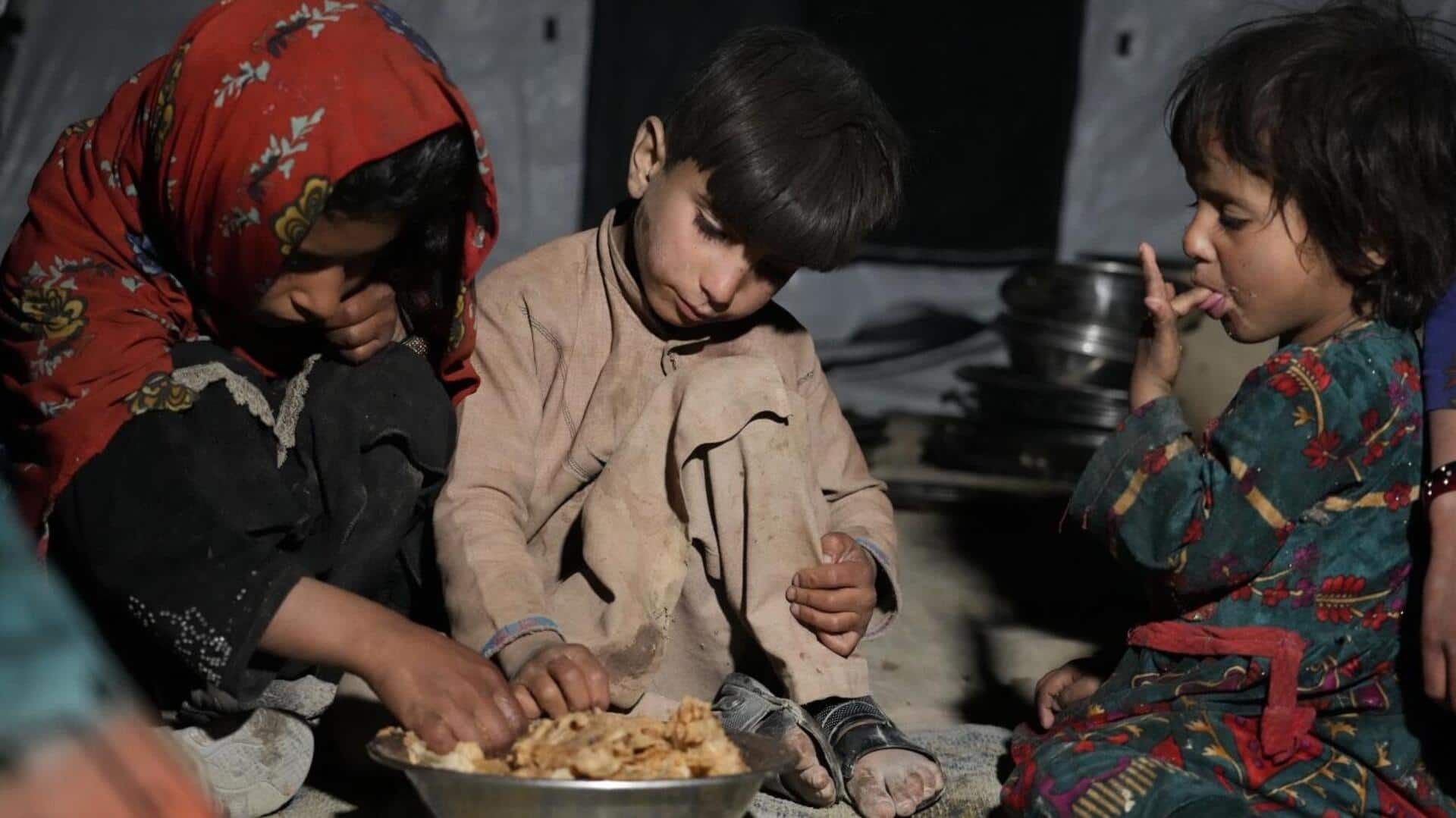
Afghanistan: Child malnutrition at unprecedented levels, warns World Food Programme
What's the story
Afghanistan is witnessing an unprecedented rise in child malnutrition, the World Food Programme (WFP) has said. The UN agency revealed that nearly 10 million people, or a quarter of the country's population, are facing acute food insecurity. The report also highlighted that one in three children suffers from stunting due to malnutrition.
Crisis factors
US cut food aid to Afghanistan
The WFP attributed the rise in child malnutrition to a reduction in emergency food assistance over the past two years. This decline was due to falling donor support, especially after the United States under President Donald Trump stopped food aid to Afghanistan in April. The US had been a major contributor to WFP, donating $4.5 billion out of $9.8 billion last year.
Additional challenges
Climate change and economic challenges
Matiullah Khalis of the National Environmental Protection Agency noted that climate change is impacting rural areas in Afghanistan. Droughts, water shortages, declining arable land, and flash floods have had a "profound impact" on people's lives and the economy, according to Khalis. Further complicating matters are mass returns from neighboring countries deporting people back to Afghanistan.
Funding appeal
WFP calls for urgent funding
The WFP has been able to support some of the returnees from Iran but needs more funds. Ziauddin Safi, a communications officer at WFP, said they need $15 million for returnees from Iran alone. Overall, they require $539 million until January to support vulnerable families across Afghanistan. Without this funding, the agency will be unable to meet the needs of those affected by food insecurity and malnutrition in Afghanistan.